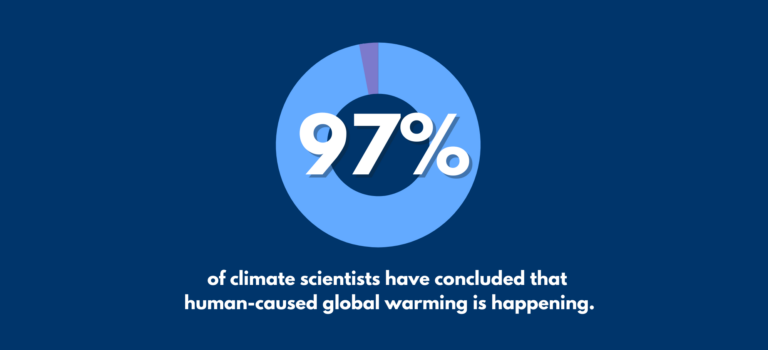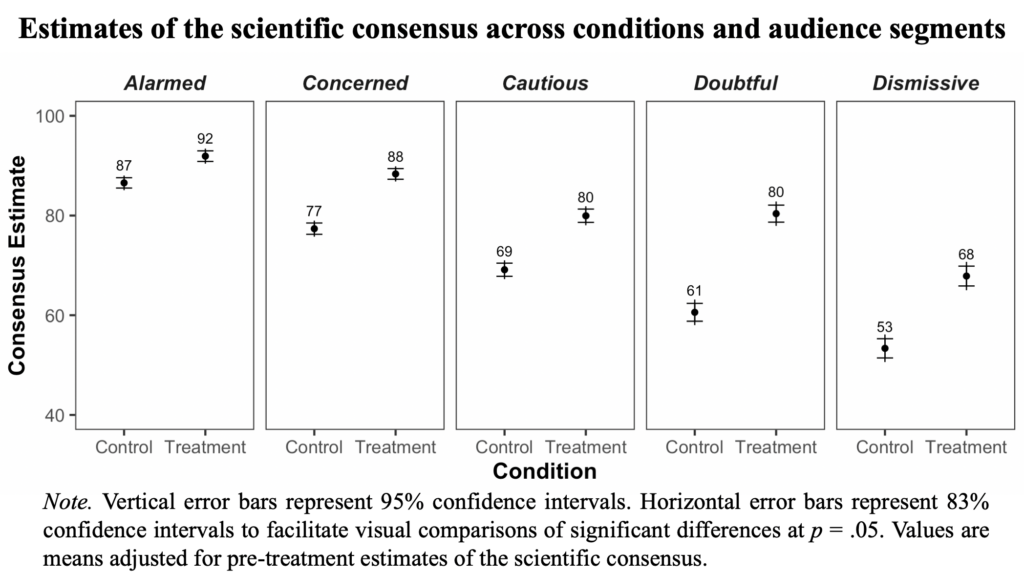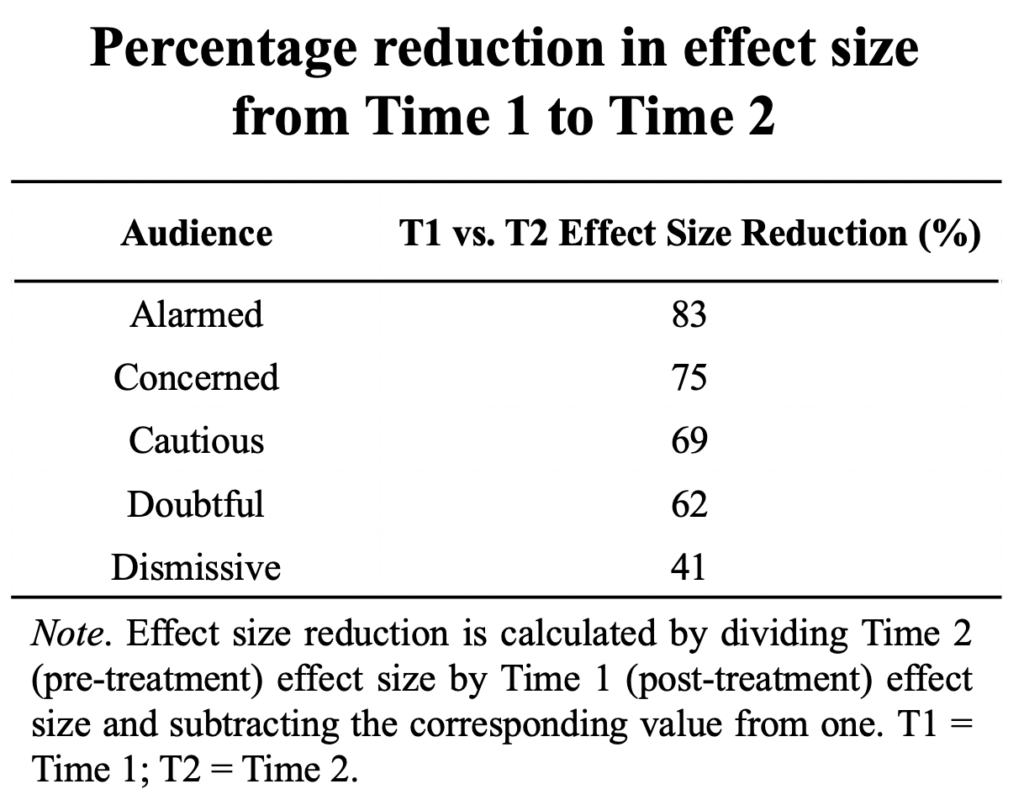Peer-Reviewed Article · Oct 27, 2022
Communicating the scientific consensus on climate change: Diverse audiences and effects over time
By Matthew Goldberg, Abel Gustafson, Sander van der Linden, Seth Rosenthal and Anthony Leiserowitz
Filed under: Beliefs & Attitudes and Messaging

We are pleased to announce the publication of a new article, “Communicating the scientific consensus on climate change: Diverse audiences and effects over time” in Environment and Behavior. We build on our previous research that identified the importance of communicating the scientific consensus that human-caused global warming is happening. In this study, we examine how persuasive this message is across Global Warming’s Six Americas, how long its effects last over time, and what predicts whether those effects last.
We use the Six Americas to investigate whether people across a wide range of climate beliefs and attitudes update their beliefs in response to the scientific consensus message. Some scholars of motivated reasoning have argued that people are inherently motivated to accept or reject messages about climate change depending on their underlying ideological and political values. Others, however, argue that people will update their beliefs when given new information about an issue like climate change. To test this, we delivered a consensus message (i.e., “97% of climate scientists have concluded that human-caused global warming is happening”) to members of five of the six U.S. climate audiences (not enough people from the Disengaged audience participated in the study for us to analyze their data). We found that all audiences – from Alarmed to Dismissive – updated their beliefs about the scientific consensus (see figure below). This was especially true for members of the Doubtful and Dismissive audiences who, according to motivated reasoning theories, should be driven by their ideological and political beliefs to not update their climate beliefs. In other words, our findings support the hypothesis that ideological motivations do not inhibit people who are Doubtful or Dismissive about climate change from learning new information about it that runs counter to their initial beliefs.
Next, we examined the extent to which the effects of this message lasted over time. We contacted the same respondents an average of 26 days after they received the consensus message and found that, on average, 40% of the original treatment effect persisted.
We next looked at whether these messaging effects were more likely to fade among oppositional audiences (e.g., the Dismissive) than audiences that already have more pro-climate views (e.g., the Alarmed). We found the opposite pattern: message effects faded the least among the Dismissive and Doubtful audiences (see table below).
We also investigated what predicts whether messaging effects fade over time. One key factor was whether participants reported having seen or heard additional information about the scientific consensus between the two points in time when we conducted the surveys. We found that the effect of the initial message faded completely among people who reported they had no exposure to information about global warming (and hence, no consensus information) or people who reported hearing only anti-consensus information. However, there were lasting effects among people who reported exposure to a mix of pro- and anti-consensus information or exposure only to pro-consensus information.
The full article is available here to those with a subscription to Environment and Behavior. If you would like to request a copy, please send an email to climatechange@yale.edu with the subject line: Request Consensus Six Americas paper. A pre-publication version is also available here.

